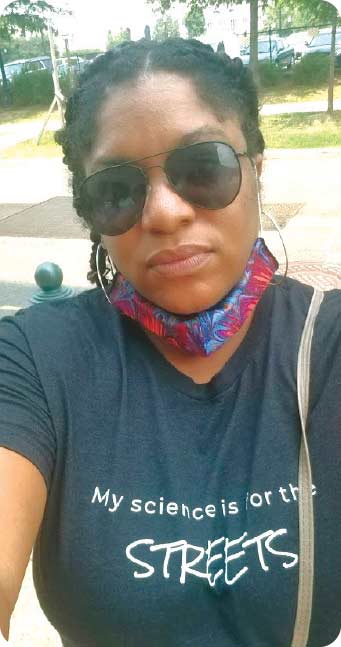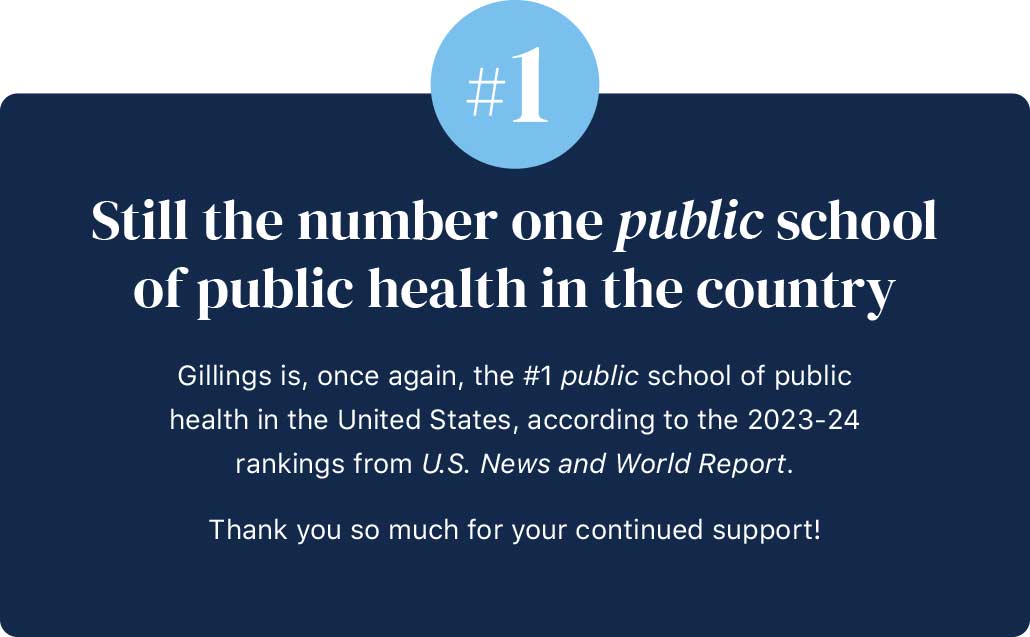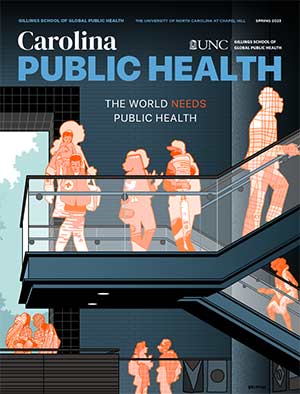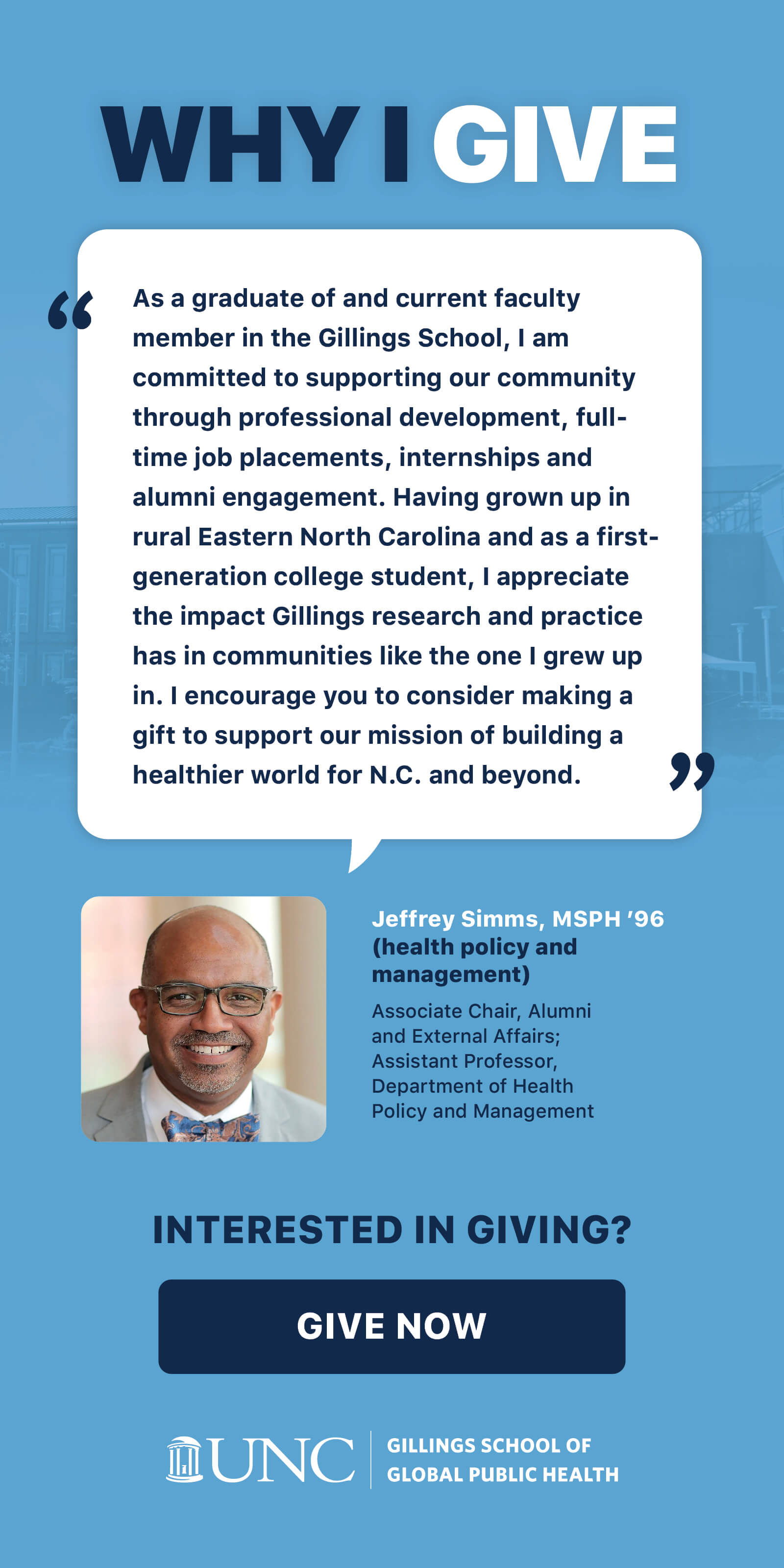Dr. Sharrelle Barber disrupts the status quo in public health to address racism as a crisis and promote anti-racism solutions through the Ubuntu Center.
What’s your role in public health?
My role is to disrupt the status quo and think about what we need to do differently to really address structural racism and the root cause of racial health inequities.
After the murder of George Floyd and the global protests that erupted, the Drexel Dornsife School of Public Health (where Dr. Barber is a faculty member) held a series of town hall meetings. Out of those conversations came the seed of an idea: to create a space to address “racism as a public health crisis.” A planning committee was convened to develop a center for scholars, community members, organizers and activists to work together toward a more just world. The Ubuntu Center on Racism, Global Movements & Population Health Equity arose from an intentional and collaborative planning process. As its director, I am helping to cultivate its growth along with our team.
Amid a COVID-19 pandemic that is having disproportionate impacts on Black communities and other communities of color — and amid repeated instances of state-sanctioned violence — we continued to ask: “What’s necessary because of the pain, and what’s possible because of the power of this moment?”
Can you describe your focus area in one sentence?

Dr. Barber’s shirt reads, “My science is for the streets.”
My focus is on understanding the ways that racism produces racial-health inequities and mobilizing evidence and narratives toward anti-racism solutions.
This work is necessarily community centered, and it is informed by social movements. History shows that social movements — locally, nationally and globally — can push us forward, and that’s what we’re excited about. We want to tap into those insights about how to bring about the sort of fundamental transformational change that’s needed. It’s important to connect with people who are on the ground, already doing this work, to continue to learn and build relationships.
What brought you to public health?
It was a desire to merge my interest in health and health inequities with my passion for social justice. I saw public health as the vehicle to do that work — though, honestly, I stumbled upon public health. I decided to enroll in a summer program at Harvard as an undergrad, and it opened my eyes to public health as a place to study the links between discrimination and health. After that, I was looking for other opportunities to explore public health and found another summer program at UNC-Chapel Hill. I remember going on the School’s website and seeing a focus on community that was really powerful for me.
How have you pivoted in response to the coronavirus pandemic?
One thing was immediately clear: the importance of documenting what was happening. However, the Ubuntu Center itself represents the real pivot. It exists not just to document the impact of racism, but to define and advance anti-racism solutions. The pandemic highlighted the way racism is embedded and ingrained in so many intersecting systems. We’re working to answer the question: “How do we take knowledge from a historical perspective, which allows us to understand how these systems work, and create solutions?”
Early in the pandemic, I joined scholars around the country to serve on a health-justice advisory board for the Poor People’s Campaign. We were thinking about how to center health equity and justice in the pandemic response on a national scale. That helped me think about what kind of center could align itself with movements to address these issues. The data alone aren't enough, and we see the power that exists in movements. We need to break the walls between the ivory tower and the broader community. We need to build the collective power necessary to both dismantle oppressive systems and re-imagine what will be built in their place.
Who are you when you’re at home?
I’m very relaxed, and I feel like I’m deeply reflective. My window faces a path that goes through a wooded area. Since the pandemic, I’ve been working from home a lot more, and I’ve been able to literally observe the seasons change. It grounds me in a way that I didn’t realize I needed. Seeing the trees budding for spring is a reminder that, although the work is hard and challenging — and you don’t change these things overnight — there’s hope and promise. I try to stay hopeful and keep myself optimistic about the possibility of making lasting change.
For more Gillings stories of impact, discovery and surprise in public health:
- The Pivot articles: sph.unc.edu/comm/the-pivot
- The Pivot podcast: Search “pivot gillings” on your favorite podcast app





